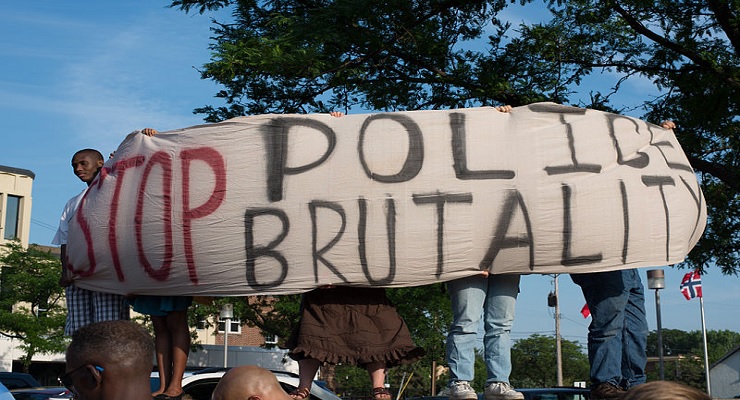
From Voice of America
The U.S. Embassy in Zimbabwe said Thursday it is “alarmed” by credible reports that security forces are targeting and beating activists and labor leaders after a local doctors’ rights group said it had treated 68 gunshot cases and scores of other cases of assault.
The U.S. also urged Zimbabwe’s government to restore access to social media as the country faces its worst unrest since deadly post-election violence in August. Zimbabweans this week heeded a nationwide stay-at-home call after the government dramatically increased fuel prices, making gasoline in the economically shattered country the world’s most expensive.
Hungry residents of the capital, Harare, on Wednesday reported being tear-gassed by police as they ventured out to seek food. “Are we at war?” one resident asked. The city was quiet on Thursday as people stayed home, with schools and many shops closed and soldiers controlling long lines at the few gas stations open.
Zimbabwe’s state security minister late Wednesday said more than 600 people have been arrested. Prominent pastor and activist Evan Mawarire was in court in Harare on Thursday, accused of inciting violence online. Police added a charge of subverting a constitutional government, the Zimbabwe Lawyers for Human Rights said.
President Emmerson Mnangagwa while traveling overseas has denounced what he called “wanton violence and cynical destruction” but appeared to side with authorities who blame the opposition for the unrest. He had announced the more than doubling of fuel prices shortly before leaving the country.
Zimbabweans had briefly rejoiced when Mnangagwa succeeded longtime leader Robert Mugabe, who was forced out in late 2017, thinking the new president would deliver on his refrain that the country “is open for business.” But frustration has risen over the lack of improvement in the collapsed economy, which doesn’t even have a currency of its own.
While Mnangagwa makes an extended overseas trip that will include a stop at the World Economic Forum in Davos, Switzerland, to plead for more foreign investment, former military commander and Vice President Constantino Chiwenga, a hardliner, is in charge at home.
In a grim recounting of alleged police violence this week, the Zimbabwe Association of Doctors for Human Rights said late Wednesday it had treated 68 cases of gunshot wounds and 100-plus other cases of “assaults with sharp objects, booted feet, baton sticks” and more.
It noted bites from the alleged unleashing of police dogs, and the “dragging of patients with life-threatening conditions” to court.
Death tolls this week have varied. Eight people were killed on Monday when police and military fired on crowds, Amnesty International said. Zimbabwe’s government said three people were killed, including a policeman stoned to death by an angry crowd.
The demonstrations amount to “terrorism,” Information Minister Monica Mutsvangwa said, blaming the opposition. In announcing the hundreds of arrests, State Security Minister Owen Ncube thanked security forces for “standing firm.”
Some Zimbabweans said the lack of social media meant they didn’t know the situation and preferred to stay in their homes.
“I can’t tell whether it’s safe or not, why should I take a risk?” said Elsy Shamba in Harare’s Kuwadzana suburb, one of the areas where residents said soldiers indiscriminately assaulted people earlier in the week.
Leave a Reply